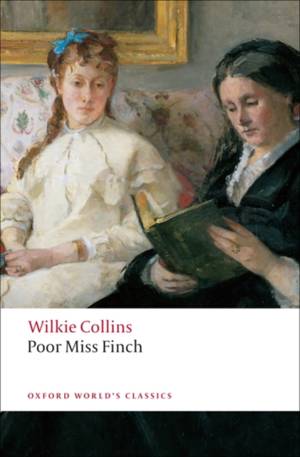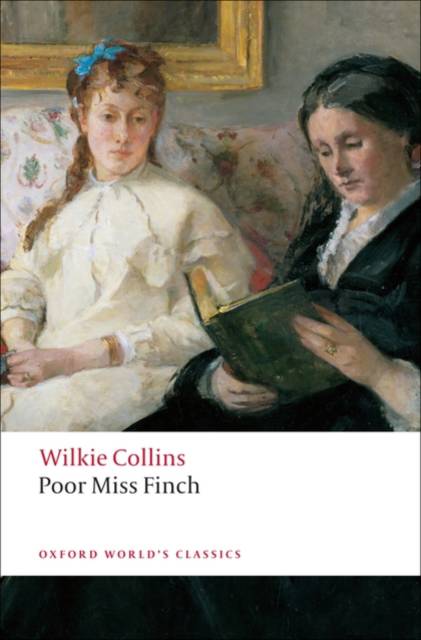
- Afhalen na 1 uur in een winkel met voorraad
- Gratis thuislevering in België vanaf € 30
- Ruim aanbod met 7 miljoen producten
- Afhalen na 1 uur in een winkel met voorraad
- Gratis thuislevering in België vanaf € 30
- Ruim aanbod met 7 miljoen producten
Zoeken
€ 15,45
+ 30 punten
Uitvoering
Omschrijving
Wilkie Collin's intriguing story about a blind girl, Lucilla Finch, and the identical twins who both fall in love with her, has the exciting complications of his better known novels, but it also overturns conventional expectations. Using a background of myth and fairy-tale to expand the boundaries of nineteenth century realist fiction, Collins not only takes a blind person as his central character but also explores the idea of blindness and its implications. His sensitive presentation of the difficulties, disappointments, and occasional delights which follow the recovery of sight by someone blind since infancy is still one of the best accounts in fiction of a problem which continues to intrigue philosophers, psychologists, and the general public, as it has done since it was first discussed by Locke and Berkeley in the eighteenth century. About the Series: For over 100 years Oxford World's Classics has made available the broadest spectrum of literature from around the globe. Each affordable volume reflects Oxford's commitment to scholarship, providing the most accurate text plus a wealth of other valuable features, including expert introductions by leading authorities, voluminous notes to clarify the text, up-to-date bibliographies for further study, and much more.
Specificaties
Betrokkenen
- Auteur(s):
- Uitgeverij:
Inhoud
- Aantal bladzijden:
- 480
- Taal:
- Engels
- Reeks:
Eigenschappen
- Productcode (EAN):
- 9780199554065
- Verschijningsdatum:
- 15/01/2009
- Uitvoering:
- Paperback
- Formaat:
- Trade paperback (VS)
- Afmetingen:
- 127 mm x 193 mm
- Gewicht:
- 317 g

Alleen bij Standaard Boekhandel
+ 30 punten op je klantenkaart van Standaard Boekhandel
Beoordelingen
We publiceren alleen reviews die voldoen aan de voorwaarden voor reviews. Bekijk onze voorwaarden voor reviews.











